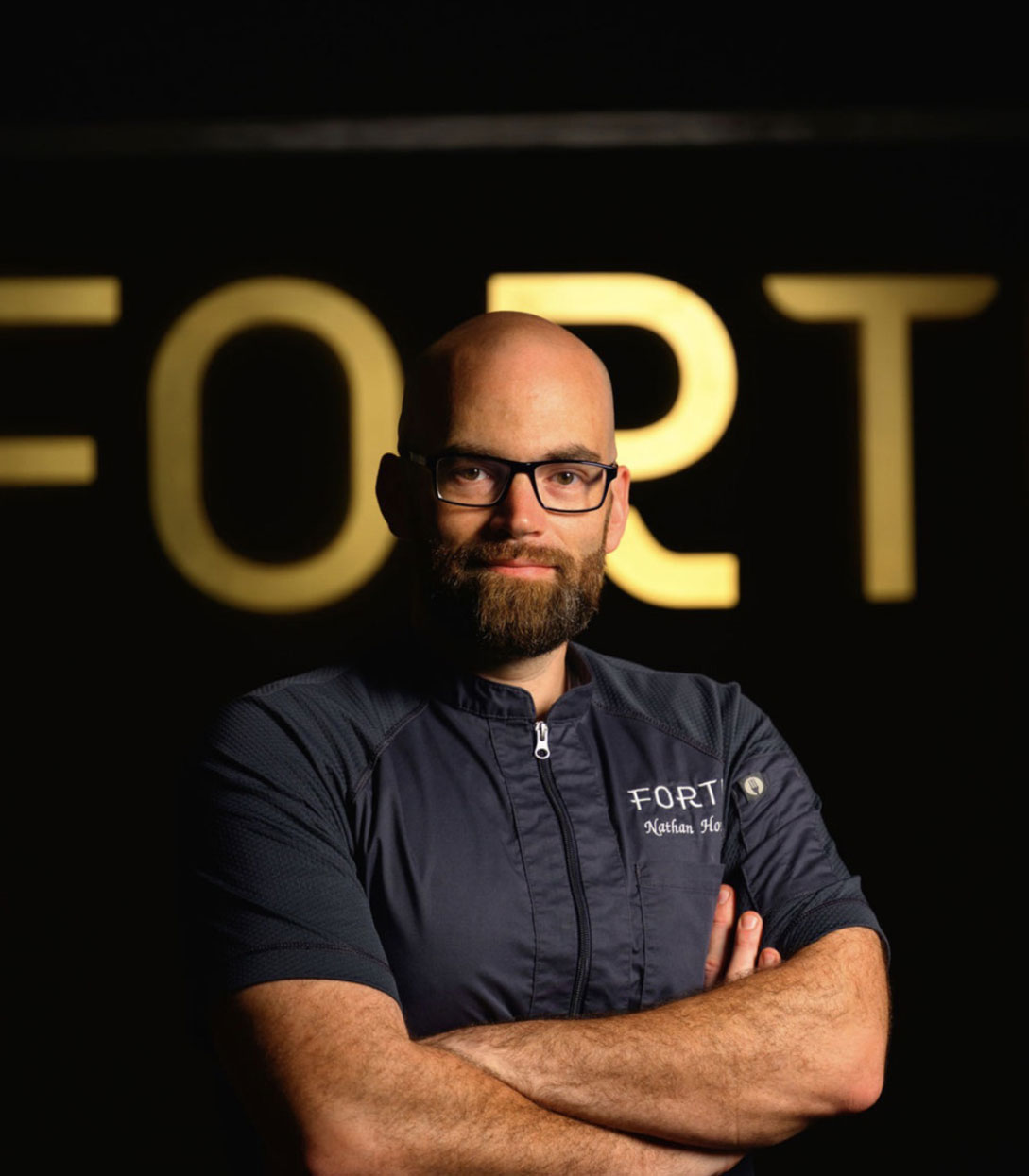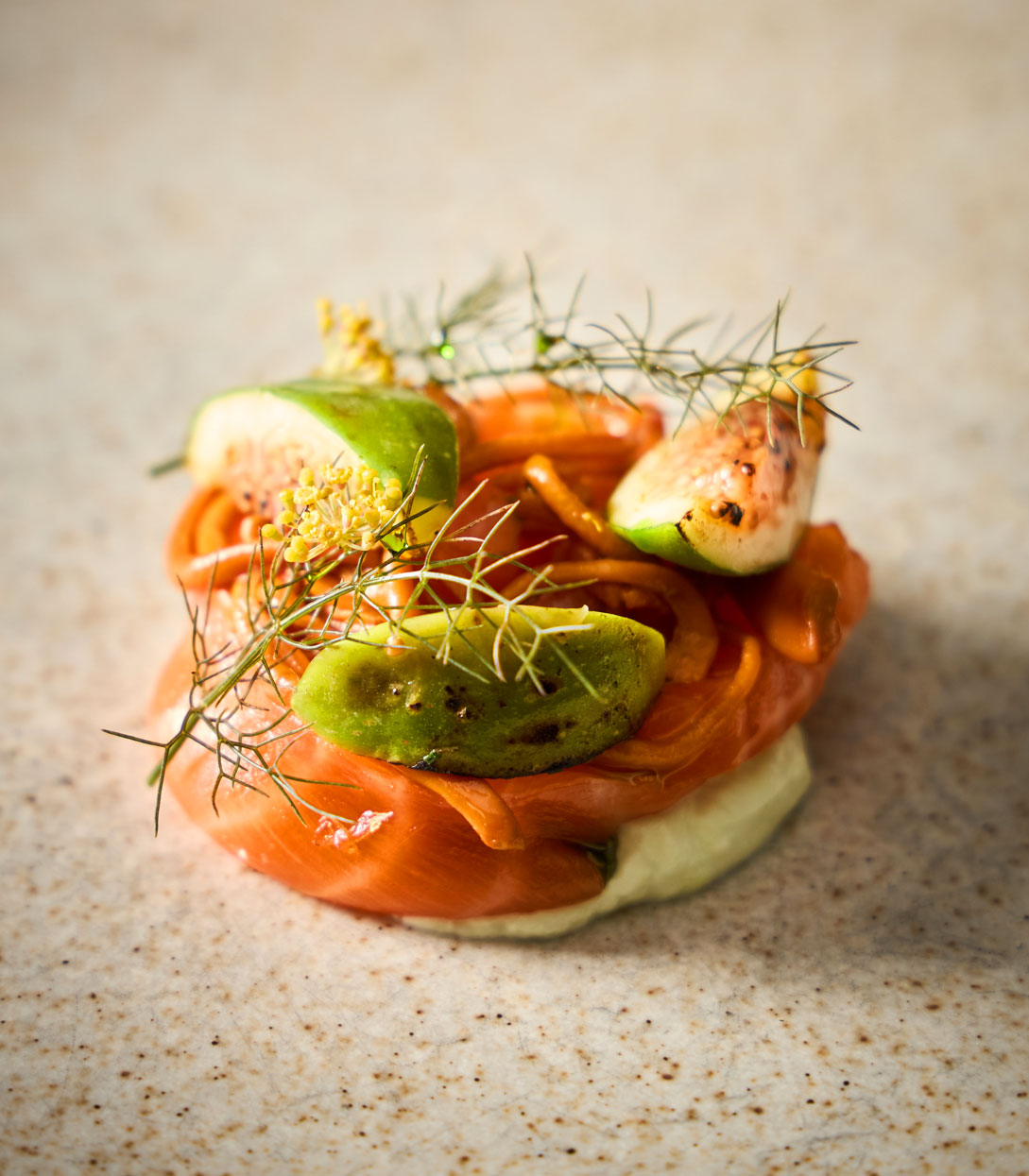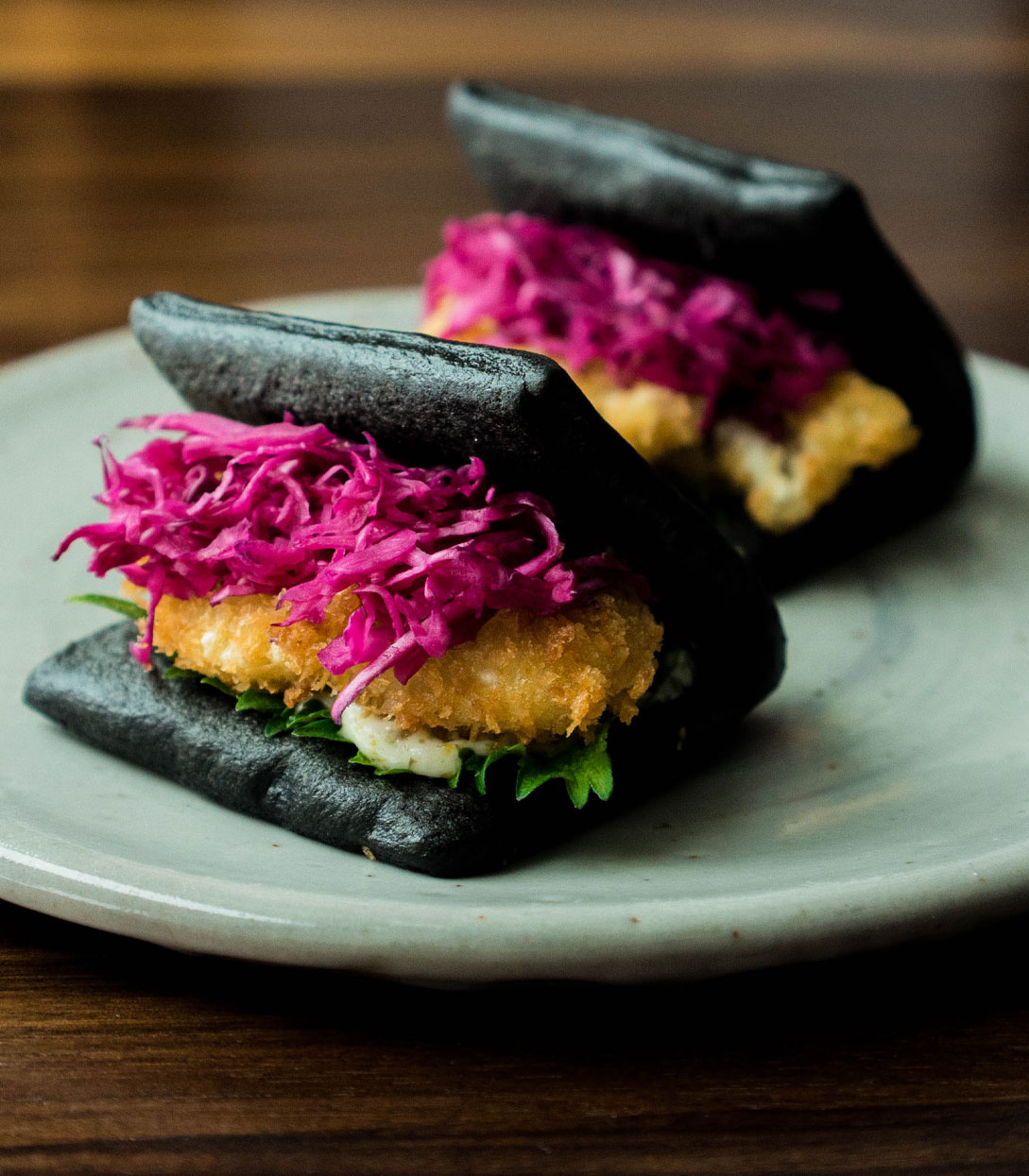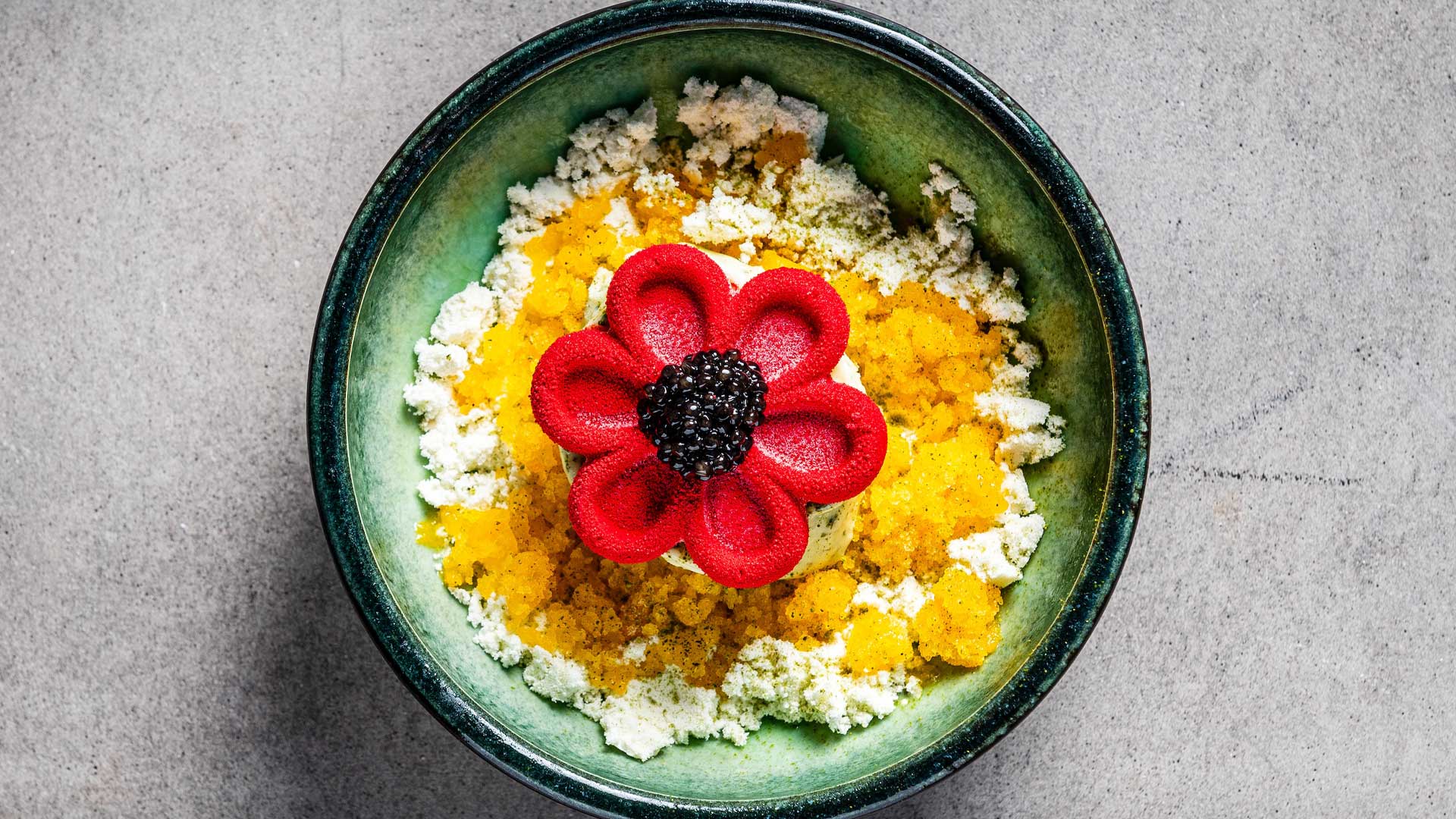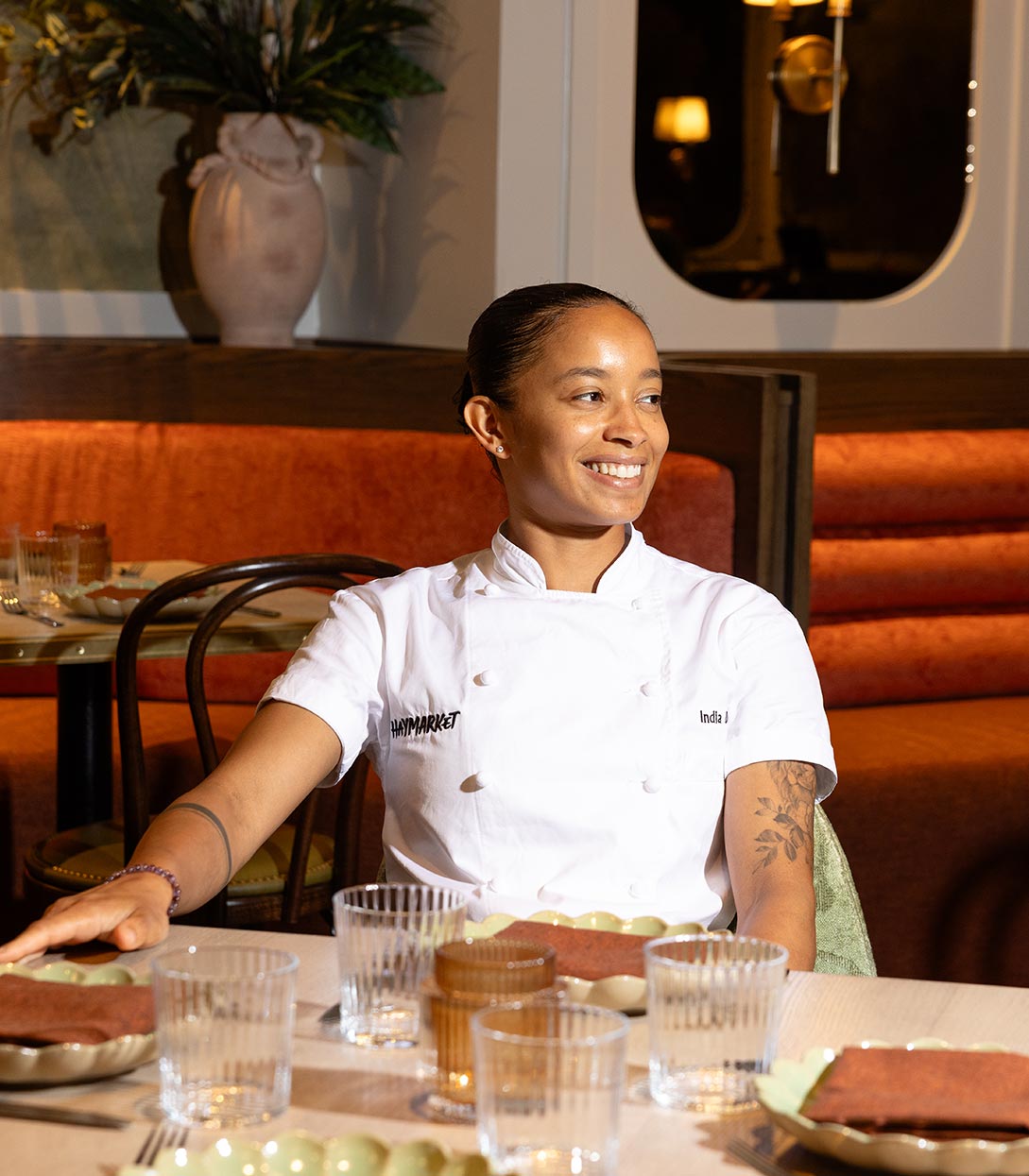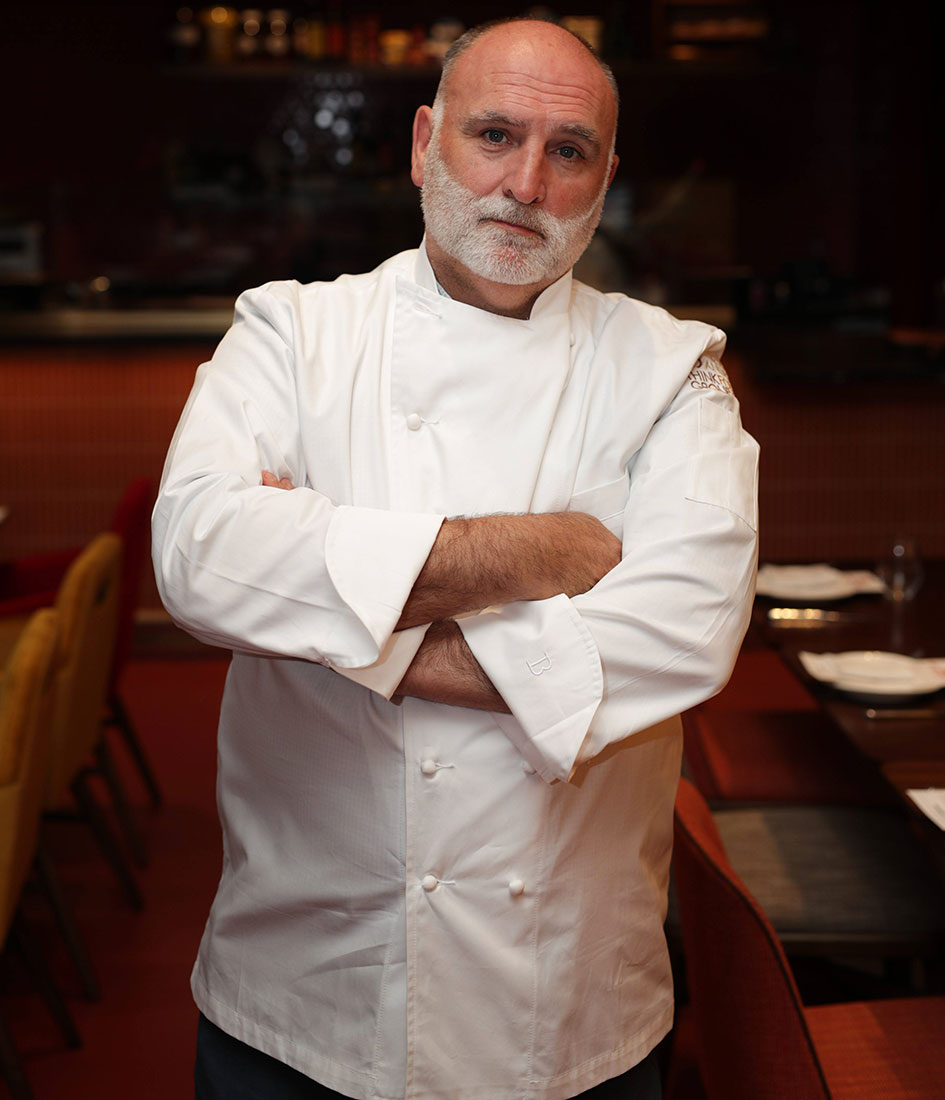"For us, sustainability constantly reminds us of where it all comes from and our responsibility as a restaurant to extend the lives around us," explains Chef Sebastián Vargas of MICHELIN Green Star Krüs Kitchen. "That's why it's important—whether it’s working with our local ecosystems (our organic farmers, fishermen, cheesemakers, etc), eliminating waste, encouraging our neighbors to take more sustainable actions in their daily lives, or calling out for change and better decisions amongst our peers or vendors—these are things we take pride in doing."
That ethos, combined with the market-driven flavors and seafood-focused dishes here, is the reason why this Coconut Grove spot is a must visit.
Below, the Miami chef takes us behind the scenes on what the future of zero waste in gastronomy looks like, and what others can do to be more environmentally friendly.
What do you view as the future of zero waste in gastronomy?
The future of zero waste in gastronomy is very clear for us—supply chains becoming more localized, utilizing waste to our advantage through fermentation and pickling techniques, composting any food waste that can’t be upcycled, sustainable packaging and the elimination of plastics, menu design that takes into account what farms are supplying through the seasons (not dictated by the restaurant or chef), more restaurants taking leadership, and making harder, more expensive decisions so that this philosophy can become more normalized.
What can other restaurants do to be more environmentally conscious?
It is very simple; it all starts in sourcing. I invite every chef or restaurateur to question every purchase they make, whether you're purchasing salt, oils, vinegars, spices, proteins, fish, wines, spirits, or vegetables—just take an extra second to question where all these things are coming from and what practices are being used. I guarantee you, that nowadays you'll find a better, tastier, and more sustainable option. These are the little “big” decisions we can take to lead us to a more sustainable world.
What’s one thing everyone can do to be more environmentally friendly in their daily lives?
Read! We encourage everyone to be a little bit more curious in their daily intake of foods, it only takes a few seconds to read a label and understand what things are made of. If you are at a restaurant, ask your server how the proteins they are using are raised or whether they work with any local farms for their vegetables. This simple act will encourage consumers to purchase and support those within our industry who are working with nature and the environment in mind.


What is the biggest challenge behind being a zero waste/sustainable restaurant?
It is a practice, and like all practices in life, they have challenges at the beginning but later become a habit. We do not see our restaurant or our practices as challenges—they are a reflection of our lifestyles and our care for our world. The more we care, the more we learn about our ecosystems and ways to support them.
What would you say is the biggest challenge in utilizing sustainable practices?
One could consider inconsistency as the biggest challenge in utilizing sustainable practices. For us, there are no challenges—it’s the only choice and only way forward. It is our responsibility as part of society.
What is one thing people should be more respectful of in terms of food and the environment?
Buying or consuming conventional and industrial proteins. Everyone should be making decisions that truly nourish themselves—not wreak havoc on the environment. By buying these types of products, like grass-fed meats, organic poultry, organic eggs, heritage pork, etc., it can make a real difference.
It’s also important to look at how we use our waste. Can we use less plastic? Can we compost our produce waste? Can we upcycle old clothes? Can we reuse our grocery bag? Combined, these two initiatives can have a major impact on our environment.


Hero image: Vanessa Diaz / Krüs Kitchen
Thumb image: Vanessa Diaz / Krüs Kitchen








